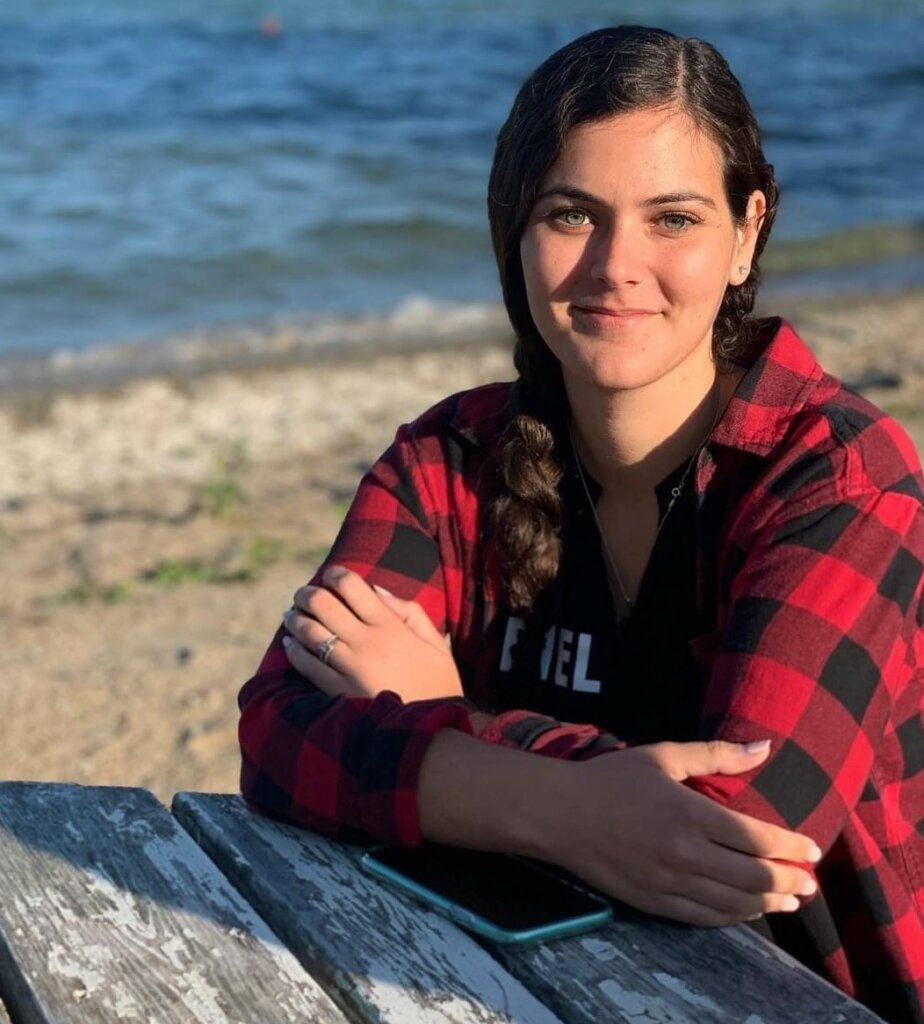
This Too Shall Pass
His wife, Jessica, was a well-loved grade one teacher in Brampton’s Rowntree Montessori Schools. To this day, Blake admires and adores her selfless dedication to the community.
“She was consistently involved in clubs, teams, and joined committees. She was an avid reader of many subjects and stories. Jessica was involved with sports throughout high school, focusing on soccer and basketball. She coached her school and other soccer teams as well,” he remembers.
Blake and Jessica Cuthbertson were married in 2018. He considers the purchase of their first home the following year as having been their biggest achievement.
“It was a good milestone and a mutual goal of ours. To achieve this target, we were both willing to make the necessary sacrifices. We saved up and reduced spending on our general entertainment because we had to pay the mortgage,” he explains.
“I think her journey early on was a lot of the unknown. Before she had her first seizure, she experienced a lot of headaches and didn’t appear to be her vibrant self. Everyone could see that, but we didn’t know why.”
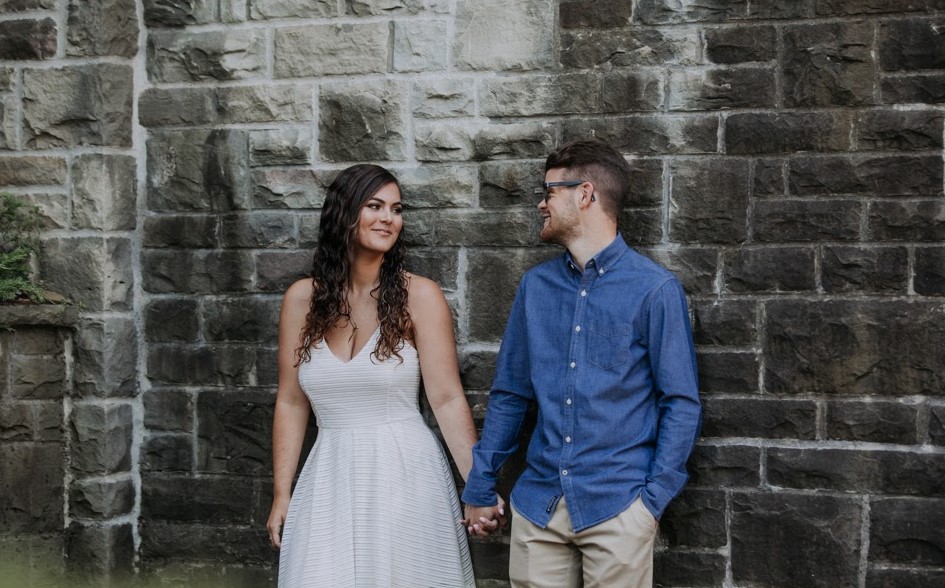 Jessica had a total of three known seizures: one in April 2017, another in August 2018, and the final in January 2019. After her first episode, she was diagnosed with a non-cancerous brain tumour.
Jessica had a total of three known seizures: one in April 2017, another in August 2018, and the final in January 2019. After her first episode, she was diagnosed with a non-cancerous brain tumour.
“That took a toll on us; not knowing if or when she was going to have another seizure, and where will it occur. She couldn’t drive because of it. Thankfully, they were able to manage the seizures. The tumour was monitored for the next 2 years before surgery was ultimately decided on. Jessica wanted to put the surgery off, as is understandable. I wanted her to get it over with, so she could hopefully get back to normal. That decision, thankfully, was taken out of our hands,” Blake reflects.
In January 2019, during a visit to her neurosurgeon, Jessica told him she wanted to move forward with the surgery.
“Dr. Jhas replied, ‘Good, because I’ve already scheduled it.’ It was going to happen one way or another. There was not much time to think about it, but it was enough to weigh heavily on the both of us. After the surgery, the biopsy was unclear,” says Blake.
Shortly after the surgery, his wife seemed to return to her normal self.
“I was surprised, and everyone was very happy about it. We were on a high for about a month and a half; considering the fact they removed 80% of the tumour, having to leave the remaining 20% as it was on a critical area of the brain,” Blake explains.
In March 2019, two months after surgery, the biopsy results showed that the growth was cancerous. It was determined that she would need radiation and oral chemotherapy.
Jessica was determined to courageously fight this battle.
“When she was first diagnosed, she told me that she did not want to know a prognosis. She said, ‘I’m just going to fight, and we’ll figure it out,’” Blake reflects.
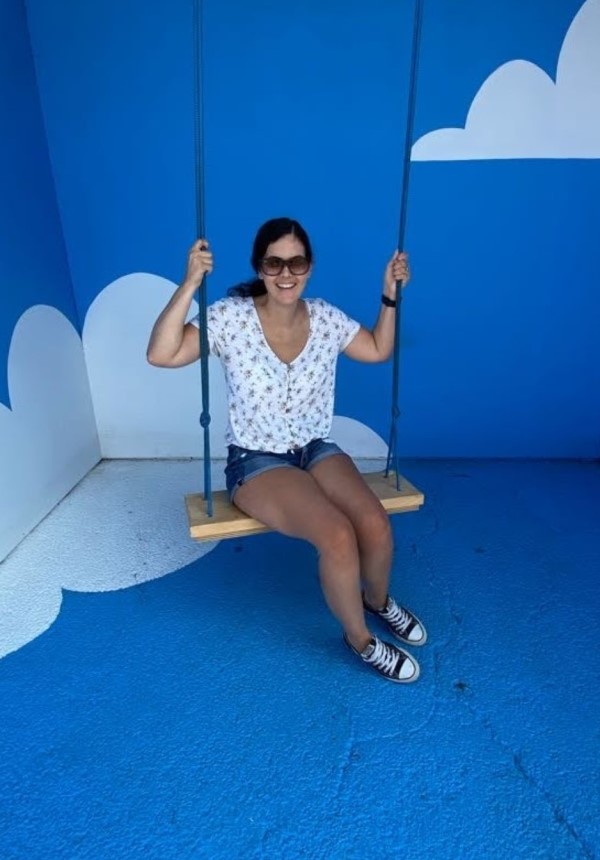 They were connected to Brain Tumour Foundation of Canada, through the Trillium Health Partners hospital in Mississauga.
They were connected to Brain Tumour Foundation of Canada, through the Trillium Health Partners hospital in Mississauga.
“For a while, I participated in a virtual support group and was able to interact. It was crazy to hear stories which were very similar to our experience. It was interesting; a lot of times people feel alone on this island. They can feel that nobody else gets it, nobody has been through this. Unfortunately, there’s a lot more people who have been through this struggle than we think,” says Blake.
Jessica was determined to have the treatment, and she planned to work through the course of exhausting radiation.
“I understood why. If she sat at home and did nothing, the thoughts would consume her. She liked to keep busy, which was another reason why she volunteered,” Blake states.
Jessica’s first treatment made her realize she was unable to work at full capacity. She had a bad reaction to the radiation and couldn’t stand up or walk. These symptoms lasted throughout her eight-week treatment.
After her radiation treatments, she was to complete a six-month bout of oral chemotherapy, for one week per month.
“She would feel good, but the next day she could crash land for a bit and then come back up. She would have a few good months in a row, and then a sudden dip as it flared up until the treatment went through her system. She just wanted it all to be over with, and to move on with her life,” he expresses, describing the experience as a roller coaster ride.
Jessica appeared to be slowly recovering, and the doctors and nurses were amazed at her tenacity!
“She would take the oral chemotherapy over the weekend starting on Friday and typically was feeling well by Monday morning. It didn’t knock her down and out like the radiation treatments,” Blake recalls.
Until February of 2022, Jessica arduously worked throughout the chaos of the COVID pandemic, and continued treatment. Three months before, she lost her balance and the ability to get around safely on her own.
“For the longest time, she fought against having to use a wheelchair, or some sort of aid. It was time she needed a break. Her biggest hope was to fight as hard as she could to get through it, doing everything in her power to beat it. Although there was no way to beat it, she surpassed every timeline and statistic she was given. Every time there was a talk about timelines, she blew them out of the water,” Blake says.
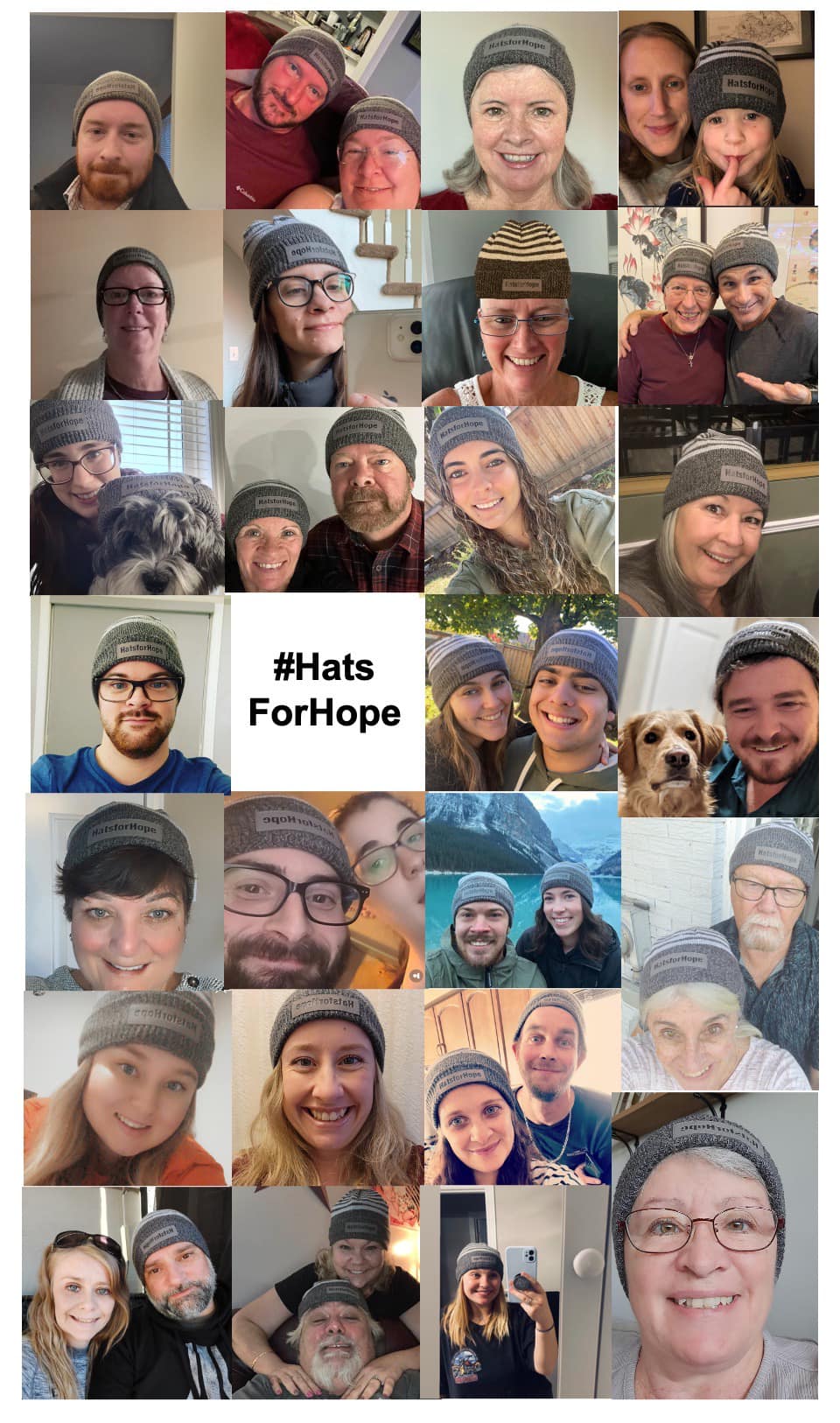 After being connected to Brain Tumour Foundation of Canada, Jessica always wanted to participate in the Brain Tumour Walk.
After being connected to Brain Tumour Foundation of Canada, Jessica always wanted to participate in the Brain Tumour Walk.
“By the time we started investigating, we realized it would be virtual during COVID. She wasn’t interested in that, but we kept an eye on it every year to see if it would return to in-person.
Since her diagnosis, it was always something we kept in mind through different times during our situation,” Blake remembers.
“Instead of boutonnieres at our wedding for the guests, we made donations to Brain Tumour Foundation of Canada.”
In honor of Blake’s grandfather who had passed away of cardiac complications, donations were also made out to Trillium Health Partners.
“They took great care of him while he was in the cardiac center. Little did we know that we would also spend a lot of time in the same hospitals; that’s where Jessica’s surgery and treatment took place. It was meant for one thing, but it carried over. The Hats for Hope campaign and the return of the in-person walk was a no-brainer for us to be involved,” he states.
The Cuthbertsons passively fundraised for the Hats for Hope Campaign in October, raising an astounding amount, close to $4000 in hat purchases from close family and friends. It was organized by Blake’s mother and included his and Jessica’s families.
By the end of the campaign, over 125 hats were sold. Although it was just those who were in the know about Jessica’s condition, they received a great response.
“It spread like wildfire over the summer! People would be messaging my mom and she ran with it all. That was the start of our successful campaign!” Blake proudly remembers.
He strongly believes that the Brain Tumour Walk is a way to capture the voices of and to connect patients, survivors, or bereaved family members.
“I think anyone who’s been impacted in any way– or knows anyone impacted— understands the severity and impact on those affected. Anything we can do to assist with research, support or fundraising is crucial for people, patients, and caregivers,” he recommends.
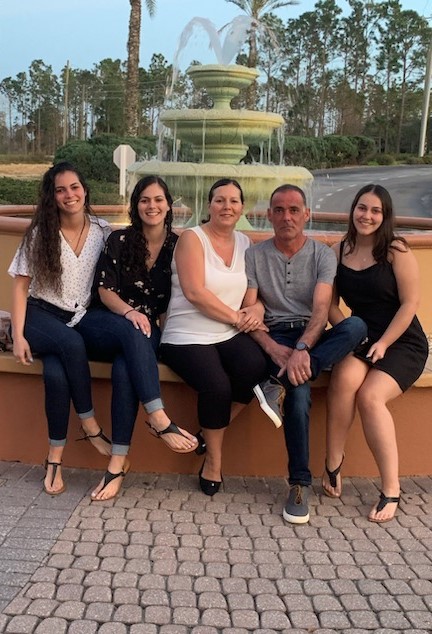 Jessica stayed home until the end of her journey. Thanks to the incredible care given by her parents—her mom Mila, dad Armindo, and sisters Jennifer and Juliana, they dropped everything to move in with her and her husband. Blake says that they couldn’t have done it without their love and support and will be eternally grateful.
Jessica stayed home until the end of her journey. Thanks to the incredible care given by her parents—her mom Mila, dad Armindo, and sisters Jennifer and Juliana, they dropped everything to move in with her and her husband. Blake says that they couldn’t have done it without their love and support and will be eternally grateful.
He realizes the value of the support groups. He and Jessica were related to a virtual hospice program that summer. They offered a plethora of support groups, activities, and events.
“I think the support programmes are good for a lot of people, and they have helped a lot of people through their time with different illnesses. I’m a big advocate in putting your story out there. I think it does a few things; one, it can help others. Two, it creates a connection, and gives people a peek into your world and what that really looks like. Three, from my perspective, it’s therapeutic,” he says.
He has been strongly influenced by family.
“Family has always been an important priority and motivator for both of us. A lot of people were caught off guard when she passed. Her sisters have always said she was a very private person. Besides her very close group of friends, nobody but family knew that there was something bigger going on. Many people knew she had surgery and treatment, but when it happened it was a surprise for many people,” he states.
After many discussions with Jennifer and Juliana, Blake decided that the best way to carry on his wife’s legacy was to bring awareness about this devastating disease.
“The team’s name right now is A Journey for Jess. I’ve set the fundraising goal to be $5000. I think with everything happening recently, it’ll be our biggest year, with a good turnout and a lot of donations,” he expresses.
With his company partnering and participating, he appreciates the significance of this event in funding research and awareness.
Since August 2022, Blake Cuthbertson has led the talent acquisition team for the tech company where he is currently employed.
“At our company, we prioritize community, volunteering, and giving to causes that mean something to us. It’s something we do, whether through fundraising or volunteerism. I had a meeting with some people to talk about how the company is going to support the Brain Tumour Walk,” he gratefully expresses.
“Being part of Brain Tumour Foundation of Canada is a personal goal for me, as well as Jess’ memory, our family, and friends. We view it as our duty in carrying on her legacy. It’s important at this point to do what we can, to help others going through this ordeal.”
For most of his wife’s experience, Blake feels that the greatest challenge was the inability to cure her disease.
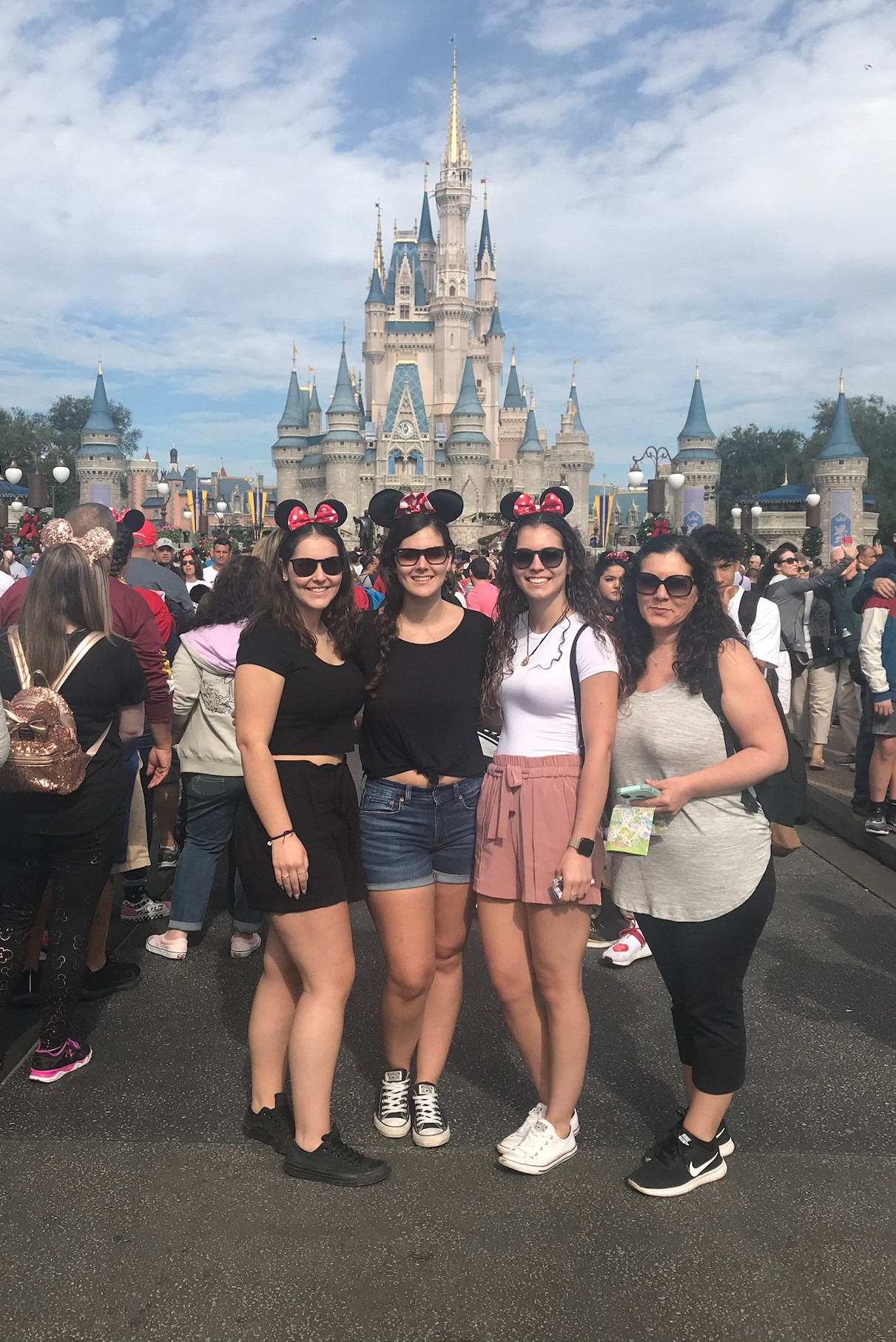 “I’m a problem solver. When something comes up, I want to find a solution. There wasn’t a solution for her diagnosis, and that was hard to process. From Jessica’s perspective, it was the unknowing and the desire to fight as much as she could, with the belief that she would get past it. She was very strong. One of her favorite quotes was, “This too, shall pass!”. She wrote it everywhere she could, and she was going to have it tattooed on her arm so she could always see it. It’s something we’ve all adopted,” he reflects.
“I’m a problem solver. When something comes up, I want to find a solution. There wasn’t a solution for her diagnosis, and that was hard to process. From Jessica’s perspective, it was the unknowing and the desire to fight as much as she could, with the belief that she would get past it. She was very strong. One of her favorite quotes was, “This too, shall pass!”. She wrote it everywhere she could, and she was going to have it tattooed on her arm so she could always see it. It’s something we’ve all adopted,” he reflects.
Although he still experiences heartbreak from the loss of his wife, he finds some hope in the turmoil.
“I knew what was coming because there was a lead up to it. It was a process, and I was able to deal with a lot in advance. Nothing prepares you for that time when you know it’s coming, such as being able to have a 15-minute conversation with her about funeral arrangements. Having said that, watching her go through that was hard; thankfully, she wasn’t just ripped from me,” he expresses.
The day after Jessica died, Blake, along with both sides of their families went to the funeral home.
“They started listing the questions, and we had answers to all of them about her wishes, and what she wants around the arrangements. I’m thankful we were able to give her what she wanted when it came to the end of her life,” he states.
From talking with others and reading online resources, his journey with grief does not end.
“It will always be a part of me, and that comforts me. At the same time, I don’t want to forget and move on, but it’s coping and finding what works for me as an individual while I go at the pace I need to,” he shares.
He is grateful for the support of his family, Jessica’s family, close friends, and for the love of his 2-year-old dog, Colby, a half Siberian Husky and half Golden Retriever.
One of his biggest goals to date is being involved in fundraising, raising awareness, and sharing his and Jessica’s story.
“It’s not just for myself, but for everyone around us, giving a different perspective on the things that matter in life. There’s a lot that hasn’t been written or spoken yet. Although her part is done, I’m not close to being finished for a greater good, a greater meaning, outcome of awareness and to be part of something important. My life duty now is giving back to the brain tumour community any way I can. Everyone who participates is important and makes a positive impact. I want to be involved, but to have the ability to take a step back when needed and say, ‘okay, I can’t jump in this headfirst today.’ I think there’s something bigger for me in that regard. I just don’t know where,” he says.
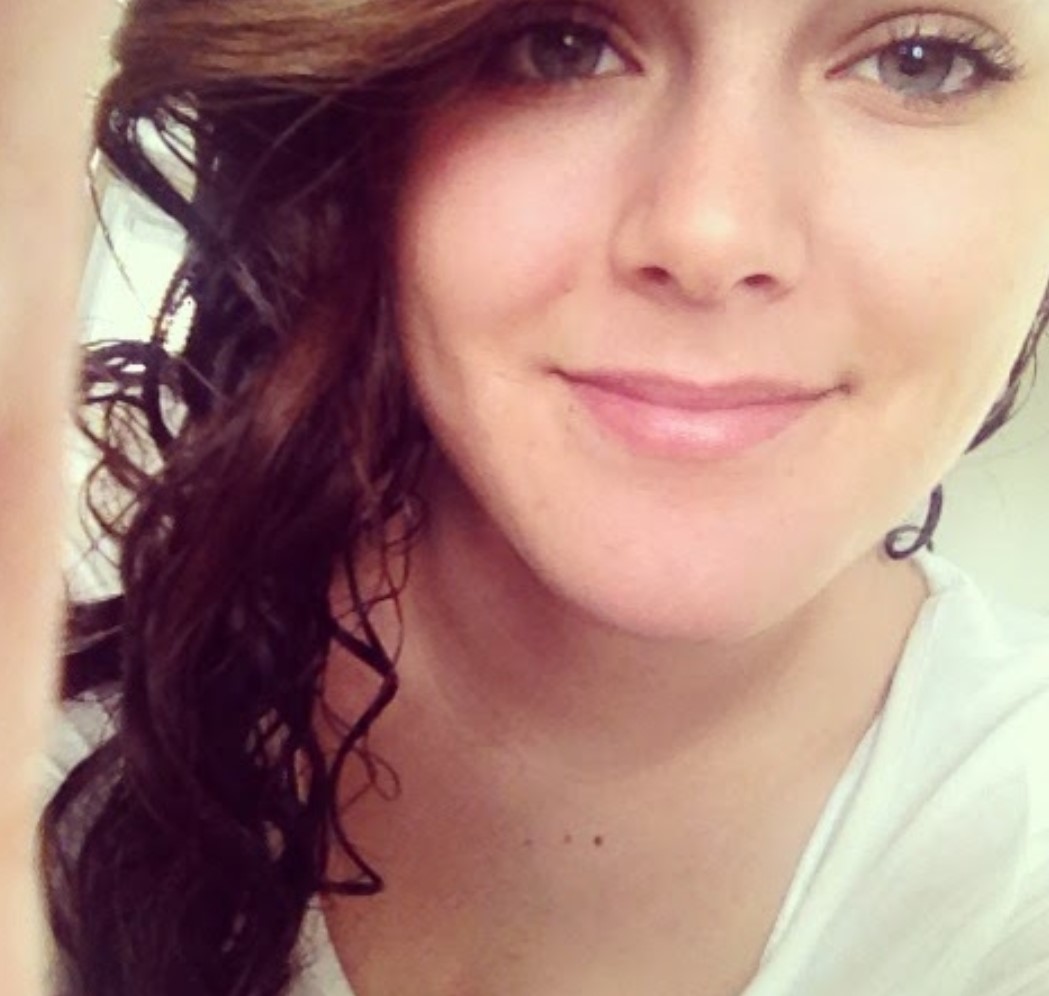 Blake’s hope is to eliminate brain tumours by finding treatments. He says that less than 20% with Jessica’s diagnosis live as long as she did, from their cancer diagnosis to passing.
Blake’s hope is to eliminate brain tumours by finding treatments. He says that less than 20% with Jessica’s diagnosis live as long as she did, from their cancer diagnosis to passing.
“I think a more realistic goal is to inspire hope in people who are going through it; hoping there’s a reason that things happen by turning the negatives into positives and transforming Jessica’s legacy into something greater.”
Although she is not here physically, Jessica continues to inspire her husband daily.
“In my eulogy, I thanked everyone for coming, but had to point out that Jessica would hate that she’s the center of attention and everyone was there for her. That’s very, very on par for her. The bigger side of it is that I don’t think she should pass in vain. Maybe my little bit of fundraising or involvement in support– whatever it ends up being now and, in the future, — if it helps one person, then it’s a win automatically,” says Blake.
On behalf of Brain Tumour Foundation of Canada and the brain tumour community,
Thank you, Blake Cuthbertson, Jessica’s family, and all the team members of A Journey for Jess!